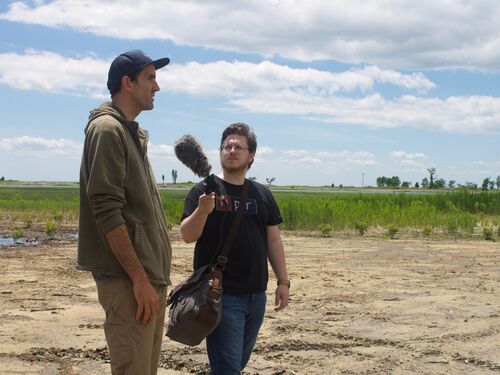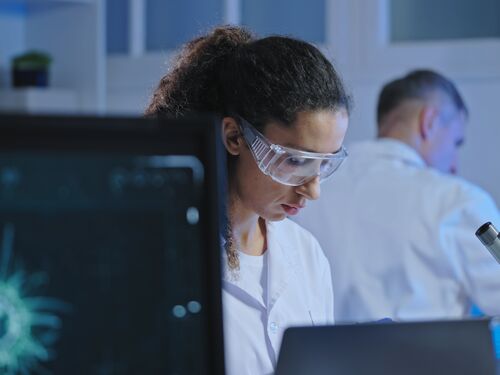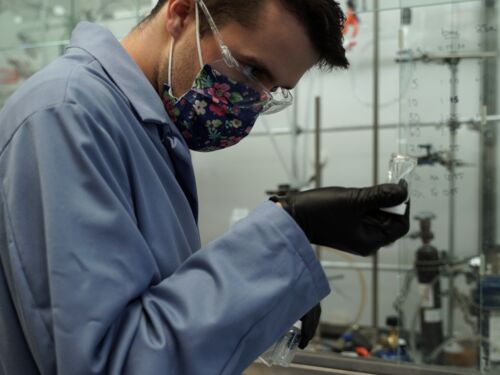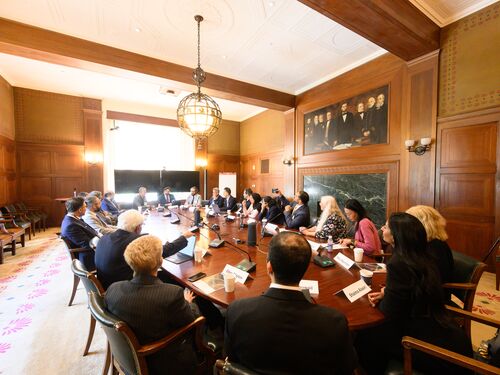International Collaboration a Focus of Space Science Week, To Kick Off March 18
Feature Story
By Josh Blatt
Last update March 13, 2024
More than 50 years since the last Apollo landing, returning to the moon has become a renewed, and decidedly global, priority. In the past year, the Indian Space Research Organization, Japanese Aerospace Exploration Agency, and Intuitive Machines Inc. have successfully put landers on the moon. And within a few years, NASA plans to send astronauts to the moon again, and with international partners build a lunar space station to provide support for surface missions, a destination for science, and a staging point for further deep space exploration.
These and other ambitious projects will be explored at the National Academies’ Space Science Week, which begins March 18 and will feature leaders from NASA and the space agencies of India, Japan, China, and other countries and from the private sector who will discuss highlights of their programs and shared goals.
“As more countries and even private companies have begun to build and launch spacecraft, the old mindset of competing for space-based ‘firsts’ has actually yielded to more international cooperation in space,” said Colleen Hartman, director of three of the National Academies’ space-related boards and a former program director at NASA. “As advisers to the nation, the National Academies are using our role to bring together leaders, experts, and individuals from around the globe to foster collaboration and spur international dialogue on significant space science issues that transcend borders.”
The increasingly active field of space law will also be explored at the event as the U.S. negotiates the Artemis Accords to establish norms and principles of cooperation in space, with dozens of countries and an array of companies expanding their reach into space. Frans Von der Dunk, Harvey & Susan Perlman Alumni and Othmer Professor of Space Law at the University of Nebraska-Lincoln, will lead discussions on the challenges ahead.
“Recent advancements in space have exceeded our wildest expectations, and I’m looking forward to seeing what comes next, with human-robotic exploration of Mars, experiments to advance our understanding of the sun, Earth, and solar system, and with all these international efforts,” Hartman said. “It’s clear that science continues to unite us, and it is more crucial than ever that collaborative, science-based efforts drive us forward.”
The week will include a keynote address from Anna-Lisa Paul, director of the Interdisciplinary Center for Biotechnology Research at the University of Florida, whose groundbreaking research focuses on how plants adapt to spaceflight and how to help them thrive in long-term microgravity habitats — so that plants can ultimately be a part of a human life-support system on the moon or Mars. “The otherworldly challenges of maintaining a long-term human presence in space have to begin somewhere. Paul’s observations regarding the unique stressors of the microgravity environment also apply to our daily lives on Earth and serve as a reminder of the wonder we experience when we observe the natural world,” said Hartman.
Register to attend Space Science Week sessions March 18-22. Participants can join in person or online. Six of the National Academies’ standing space committees will also hold separate meetings during the week.
More like this
Discover
Events
Right Now & Next Up
Stay in the loop with can’t-miss sessions, live events, and activities happening over the next two days.
NAS Building Guided Tours Available!
Participate in a one-hour guided tour of the historic National Academy of Sciences building, highlighting its distinctive architecture, renowned artwork, and the intersection of art, science, and culture.



